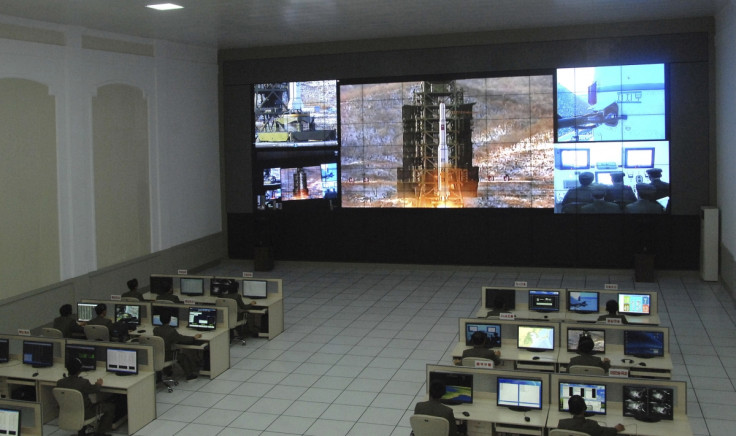North Korean Space Programme Nada's Name and Logo Inspired by US Agency Nasa

As North Korea searched for a name for its fledgling space programme, the inspiration apparently came from one of its bitterest enemies, the United States.
Pyongyang named its space programme 'National Aerospace Development Administration,' or Nada in acronym, which holds a close resemblance to the US space agency Nasa.
The secretive communist state established its space programme a year ago with overarching goals. Apart from the name, the logo of the space research agency also has a striking resemblance to Nasa's.
With a round orbital design, stars in blue globe, with Nada written in the middle much the same as 'Nasa' appears on the US agency's logo, the similarities are too close to be an accident. Here's a tweet that shows the Nada logo.
The new logo for North Korea's space agency 'Nada' looks familiar http://t.co/csFHD0URuT pic.twitter.com/7QmWWJlgYf
However, North Korea strongly defended the design of the logo, which they said carries unique meaning.
"[emblem of the NADA] represents its character, mission, position and development prospects. Two light blue-colored rings intercrossing the emblem symbolize satellite orbits. The Great Bear [Big Dipper constellation] reflects the will of the space scientists of the DPRK to glorify Kim Il Sung's and Kim Jong Il's Korea as a space power. The globe represents the DPRK's idea for peaceful development of the space and the rings show the DPRK's will to launch satellite into all orbits."
The Korean Central News Agency said the country is intent on transforming itself into a "space power, fully exercising its right to peaceful development of the space."
Pyongyang also said it will not pursue any "weaponisation of outer space", and called for multi-national cooperation in space programmes.
In 2012, North Korea launched a satellite into orbit, which it said would study crops and weather patterns. But experts say it tumbled in orbit and failed to send signals to the ground.
The US and Japan have raised doubts about the stated intentions of North Korea's space programme, fearing the reclusive state could use it for military objectives.
© Copyright IBTimes 2025. All rights reserved.



















